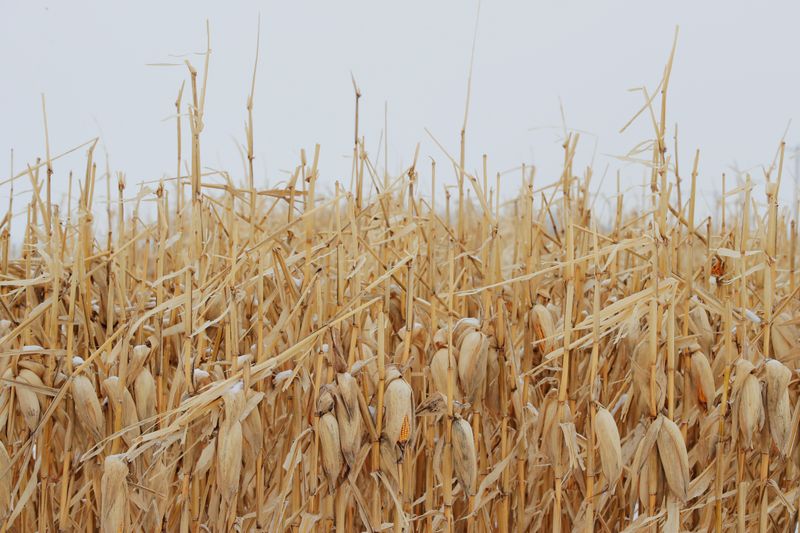By Mark Weinraub
CHICAGO (Reuters) - The 1,250 acres of irrigated fields are the most valuable on Troy Schneider's farm in eastern Colorado, as corn yields in his county typically come in more than three times higher on those fields than dryland ones.
But this year, with the economy contracting and demand for corn-based biofuel falling off, Schneider is not planting any cash crops under the sprinkler system on 125 of those irrigated acres. He calculated it would make more financial sense to grow grass for his cows.
"With the economy shut down and lack of driving, it drove the price down too much," he said. "Why even take a chance? You are going to lose money on everything."
Farmers routinely make changes to their acreage intentions as the calendar advances, substituting in different crops if the weather mucks up their original plans. But leaving the ground bare is new territory for U.S. farmers who typically plant fencerow to fencerow, trying to squeeze profit out of every available acre.
The most recent acreage data from the government showed corn and cotton plantings in particular were far below initial expectations, with corn seedings in June dropping the most from March in 37 years.
The coronavirus pandemic caused many farmers to give up on their corn crop before it was even in the ground. When calculating their plans for 2020, they had viewed corn as the crop most likely to turn a profit as ongoing tensions with China threatened to roil the soybean export program even after Beijing and Washington inked a Phase 1 trade deal in January.
A U.S. Agriculture Department report issued in March showed that farmers had planned to seed 96.999 million acres of the yellow grain, which would have been the second-highest since the Great Depression.
But demand for ethanol, a corn-based biofuel blended into gasoline, cratered as COVID-19 cases spread across the country and people stayed home. That caused corn markets to slump just as farmers were firing up their tractors for planting season. When USDA issued its June acreage report, corn plantings had dropped 5.1% from the March intentions, reflecting the 10.3% drop in prices.
U.S. supplies of corn stood at the second-highest level in 31 years last fall and the stockpiles were expected to swell even further after this year's harvest. There is so much corn on hand that even some unusual purchases of U.S. corn from China in recent weeks failed to lift prices, with futures
Cotton plantings also were sharply lower, with farmers dropping seedings by 10.9% from their March intentions of 13.703 million acres. Cotton prices dropped 30% during planting season as global shutdowns roiled demand for new clothing.
"Unfortunately, the drastic decline in cotton prices and the increased uncertainty in commodity markets are damaging an already tenuous economic situation for producers," Jody Campiche, vice president, economics and policy analysis at the National Cotton Council, said in an email to Reuters. Analysts said the drop in acreage is likely a one-time occurrence for farmers trying to avoid steep losses.
"I think this may be a one-off year," said Michael Cordonnier, president of consultancy Soybean and Corn Adviser. "You had the pandemic. There was just a general economic malaise. It just made everybody risk-averse."
A shift in government subsidies also may have contributed to farmers' decision to leave some fields fallow.
Coronavirus aid payments were based on farmers' year-earlier output, a change from the Trump administration's trade aid program meant to compensate farmers for lost sales to China. Those payments, based on planted acreage in both 2018 and 2019, encouraged growers to get crops in the field even when market prices did not support planting.
That incentive is gone in 2020.

"It costs money to put a crop out," said Jim Gerlach, president of U.S. broker A/C Trading. "It is better to make nothing than to lose money."